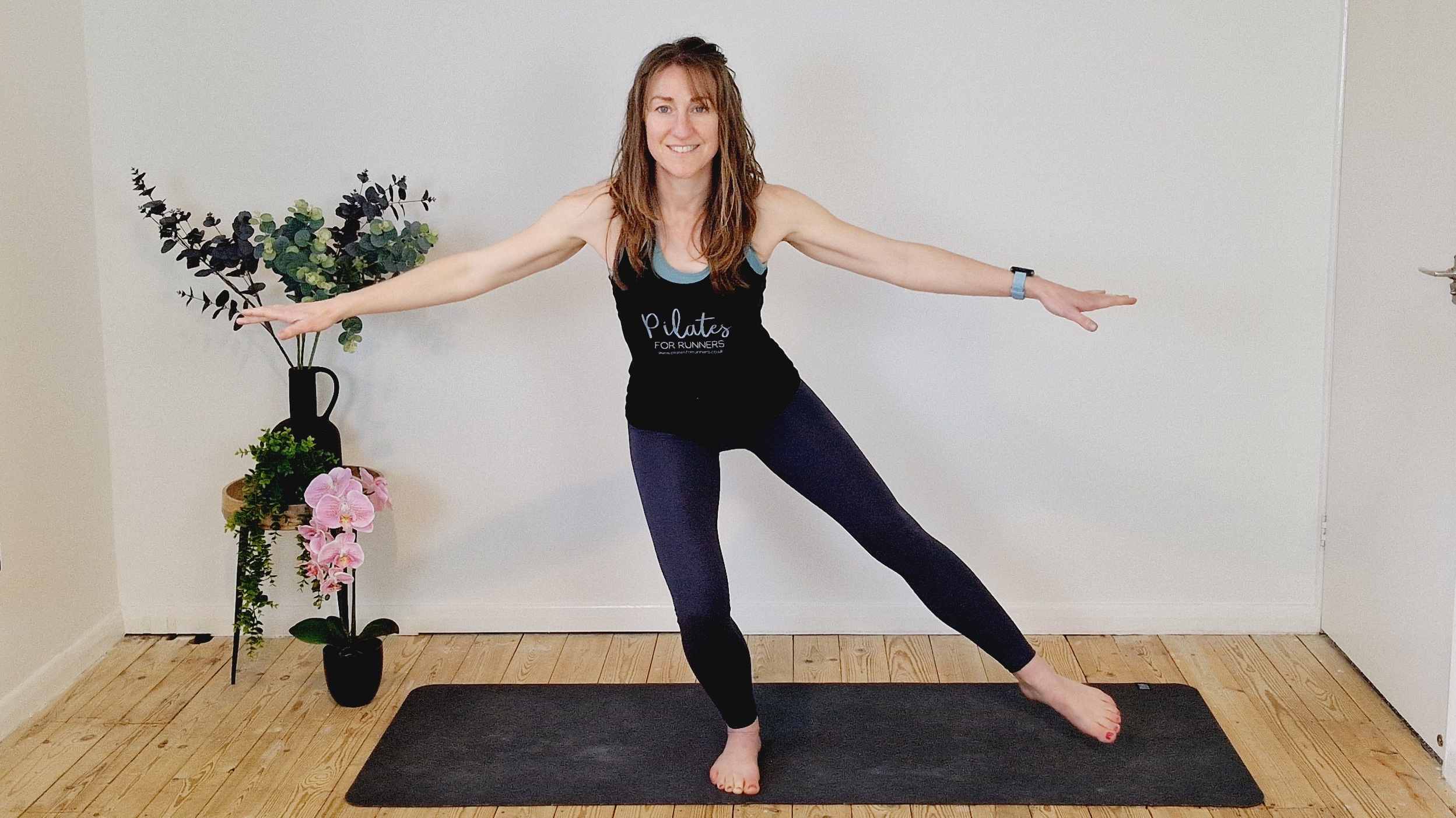
Doing some kind of strength training is one of the best ways for runners to improve their performance and injury resilience, and Pilates is a fantastic low-impact way to cross-train and support your running.
For more information on how to best incorporate Pilates for runners into your training routine, we spoke to Liz Patient, certified Pilates instructor and founder of the Pilates for Runners app.
What are the benefits of Pilates for runners?
“Pilates is a powerful tool for runners looking to increase their speed and strength, improve their posture and form, and reduce the risk of injuries” says Patient. “Studies have shown that introducing weekly Pilates to your training can improve not only your 5K time but also your trunk strength and VO2 max (Finatto et al. 2018).
“The emphasis in Pilates on building a strong core and trunk—including your glutes, hips and shoulders—improving coordination, motor control, and proprioception [body awareness] all enhance your overall stability and balance. This enables runners to maintain an optimal posture and form during each stride when they are absorbing huge loads through the body from their ground strike.
“Studies have also shown Pilates improves your functional movement (Laws et Al. 2017 and Lim et Al. 2019). As the trunk becomes stronger, runners experience increased power transfer through their bodies, in particular to the lower limbs, leading to more efficient and forceful strides.
“Incorporating Pilates into your schedule can also help to reduce injuries and help you enjoy running even more. Pilates is a fantastic balance to running to reduce both mental and physical stress on the body. The focus on breathing not only helps to reduce stress and anxiety, it also helps lower your heart rate and blood pressure, reducing physical stress in the body. At the same time, the emphasis on improving overall movement, through movement variety, strength and mobility, all helps to reduce the risk of muscle overuse from the repetitive nature of running.”
What’s a good way for runners to start Pilates?
“The low-impact nature of Pilates means it can be done anytime without impacting your running training,” says Patient. “You can get started with short but regular and consistent sessions tagged onto your runs or existing strength sessions. Start with just 10 minutes 3-4 times a week to see results, and from there you can scale and adapt your sessions around your running.”
Beginner Pilates Workout For Runners
1 Swimming
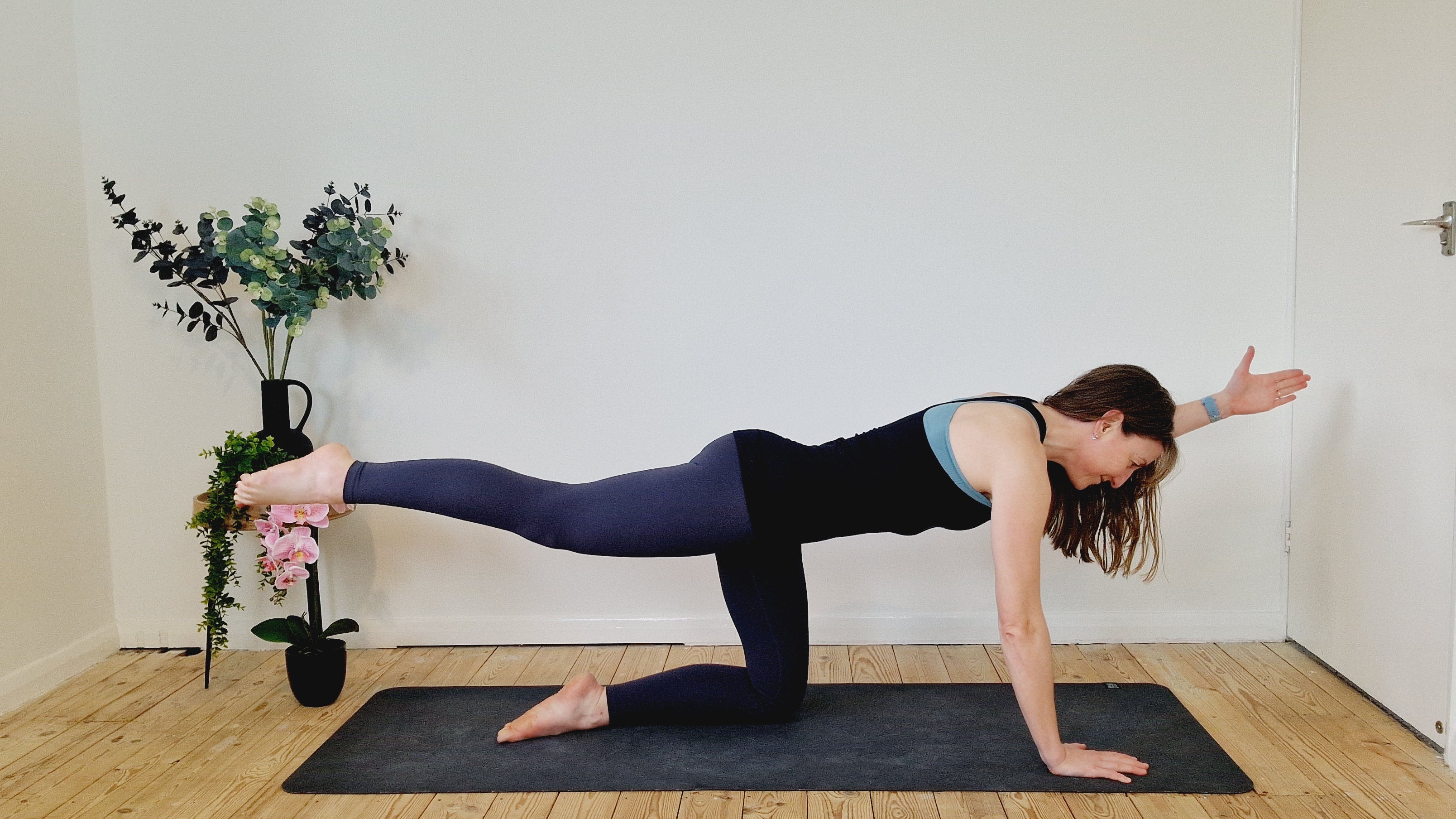
Sets 1 Reps 12-15 each side
On all fours, extend your opposite arm and leg away from the body as far as you can. Lift them, pause, and then return to the start position. Repeat on the other side, alternating sides with each rep. Imagine you have a tray of very full drinks balanced on your back, so when you move you keep your torso as still as possible and don’t let your belly drop as you lift the arm and leg.
Progression: Once you’ve extended and lifted your arm and leg, move them out to the side away from the body, still trying to keep your torso as still as possible.
2 Round the world
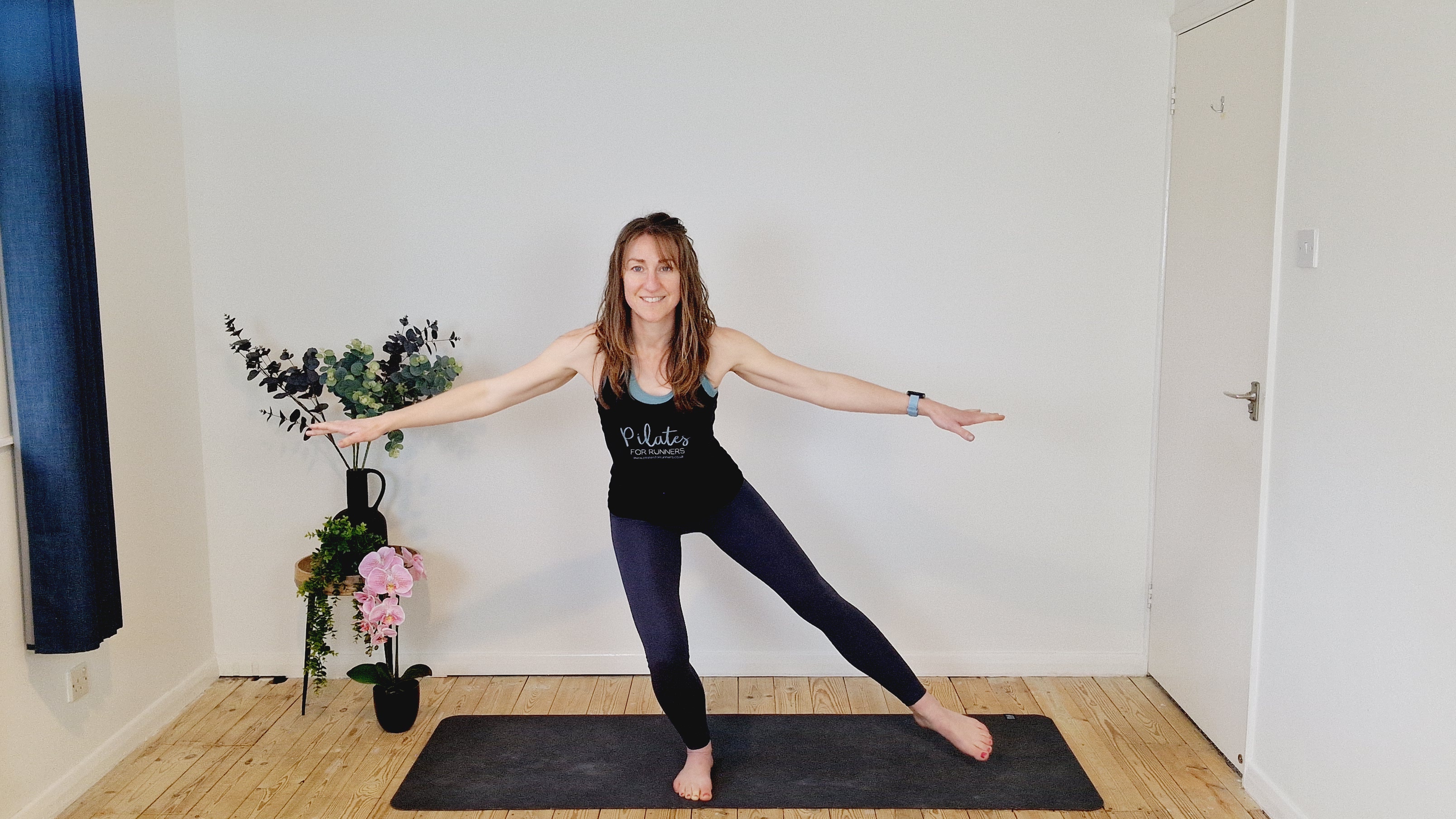
Set 2-3 Time 1-2min each side
Stand and lift your arms out to the sides to shoulder height to help you balance. Lift one leg and bend the knee of the standing leg to lower into a single-leg squat, tapping the floor with your other foot as far in front of you as you can. Straighten your standing leg, then repeat the movement tapping the foot to the side. On the next squat tap your foot behind you, then finally move your leg across and behind you on the other side of the body. Keep your torso as stable as you can over your standing leg as you do this exercise.
Progression: Interlace your fingers in front of your chest so you don’t use your arms to help you balance.
3 Leg pull
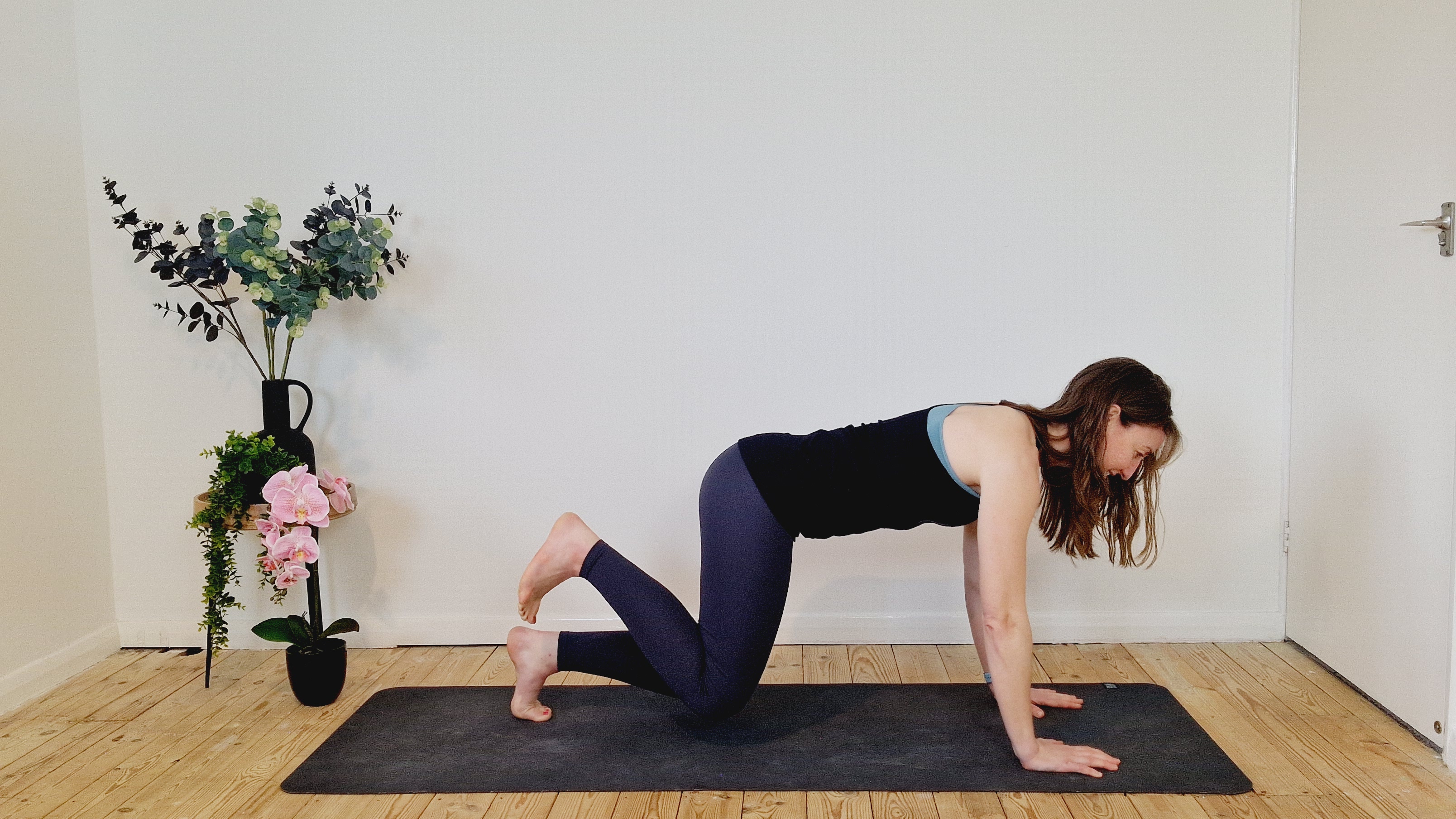
Sets 3 Time 30-45sec
On all fours, tuck your toes then lift your knees just off the floor, keeping them as low as you can. Lift one foot at a time off the floor keeping your knees and torso as still as possible. Lower your foot back to the floor and repeat on the other side. Imagine that full tray of drinks balanced on your back again.
Progression: Lift the opposite hand at the same time as you lift the foot and tap the opposite shoulder.
4 Single-leg hip hinge
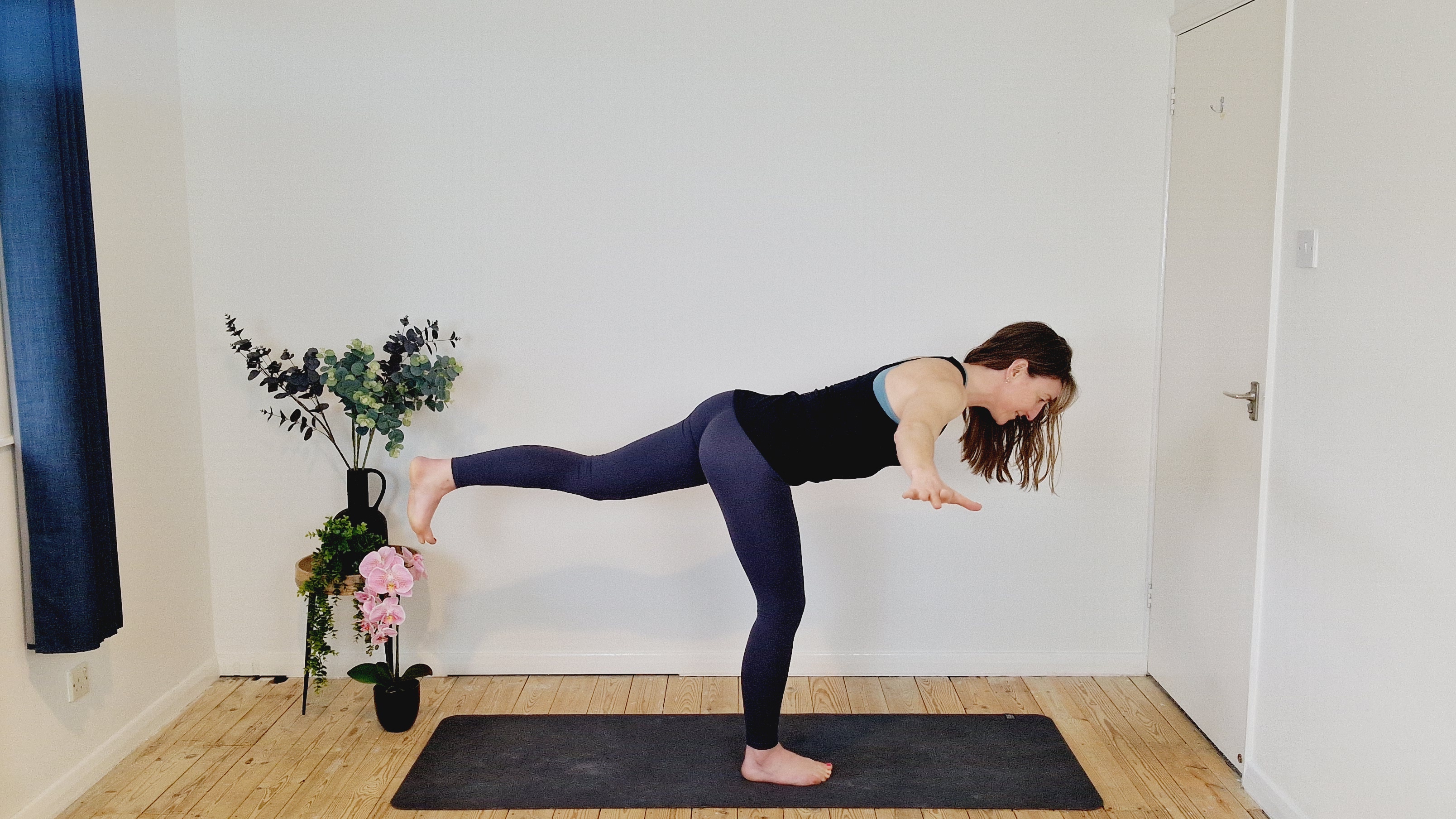
Sets 2-3 Time 1-2min on each leg
Stand and lift your arms out to the sides to shoulder height. Hinge forward the hips, tipping your chest forward so it faces the floor and raising one leg behind you as high as you can. Pause, then return to the start. Try to move as smoothly as possible.
Progression: Bring your arms over your head at the start to increase the challenge to your balance.
5 Side kick
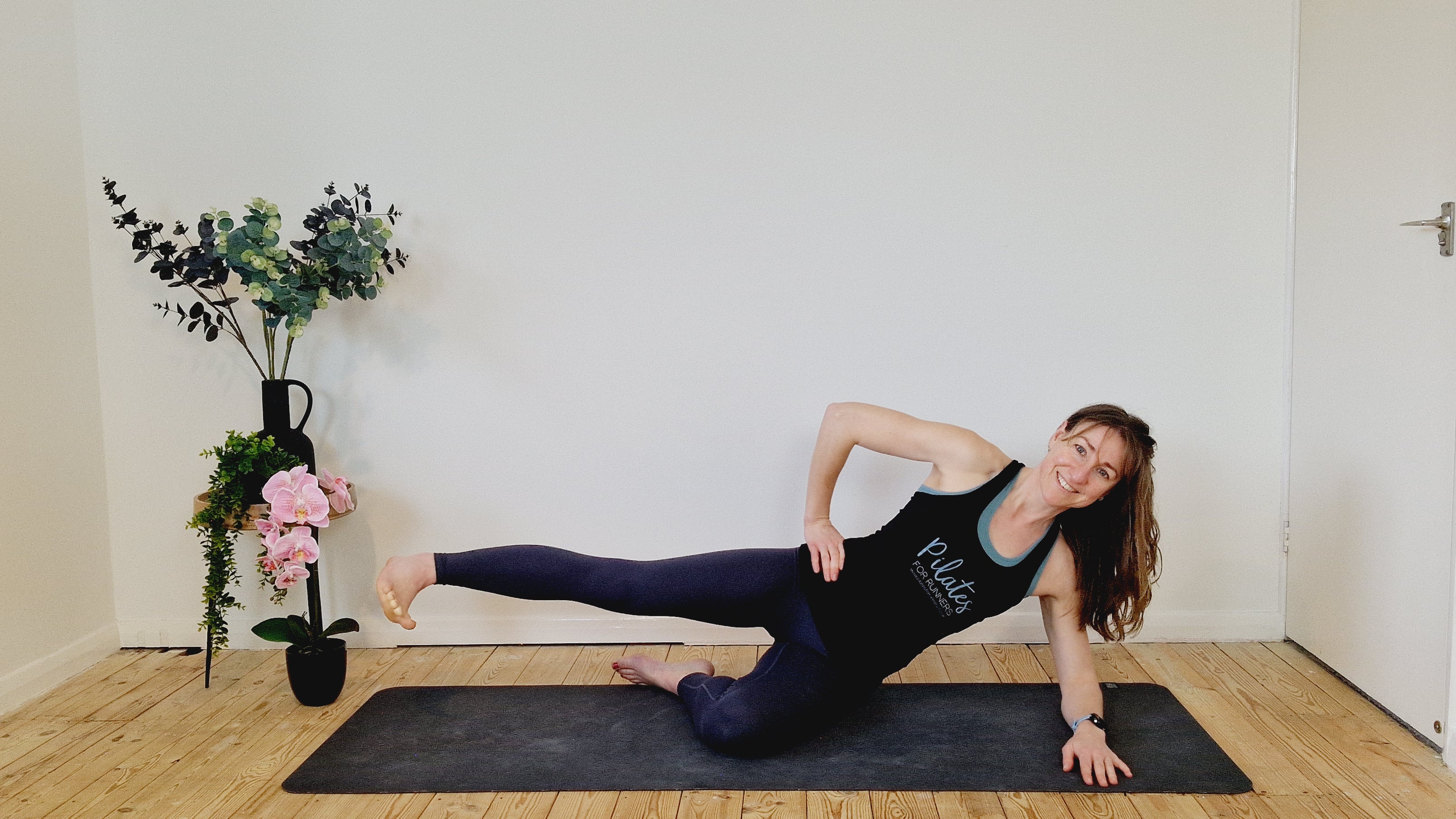
Sets 1 Time 1-2min on each side
Lie on your side with your knees bent and your body resting on your lower arm. Lift your hips so your body forms a straight line from knees to shoulders, and extend your top leg. Lift the top leg to hip height to start. Lift it as high as you can while maintaining the position of your hips then lower under control. Try to keep the knee and foot of the moving leg facing forward, or slightly turned down, rather than turning towards the ceiling. This is to target the lateral hip muscles.
Progression: Try doing this same leg movement from a kneeling position with a straight, rather than bent, arm.







